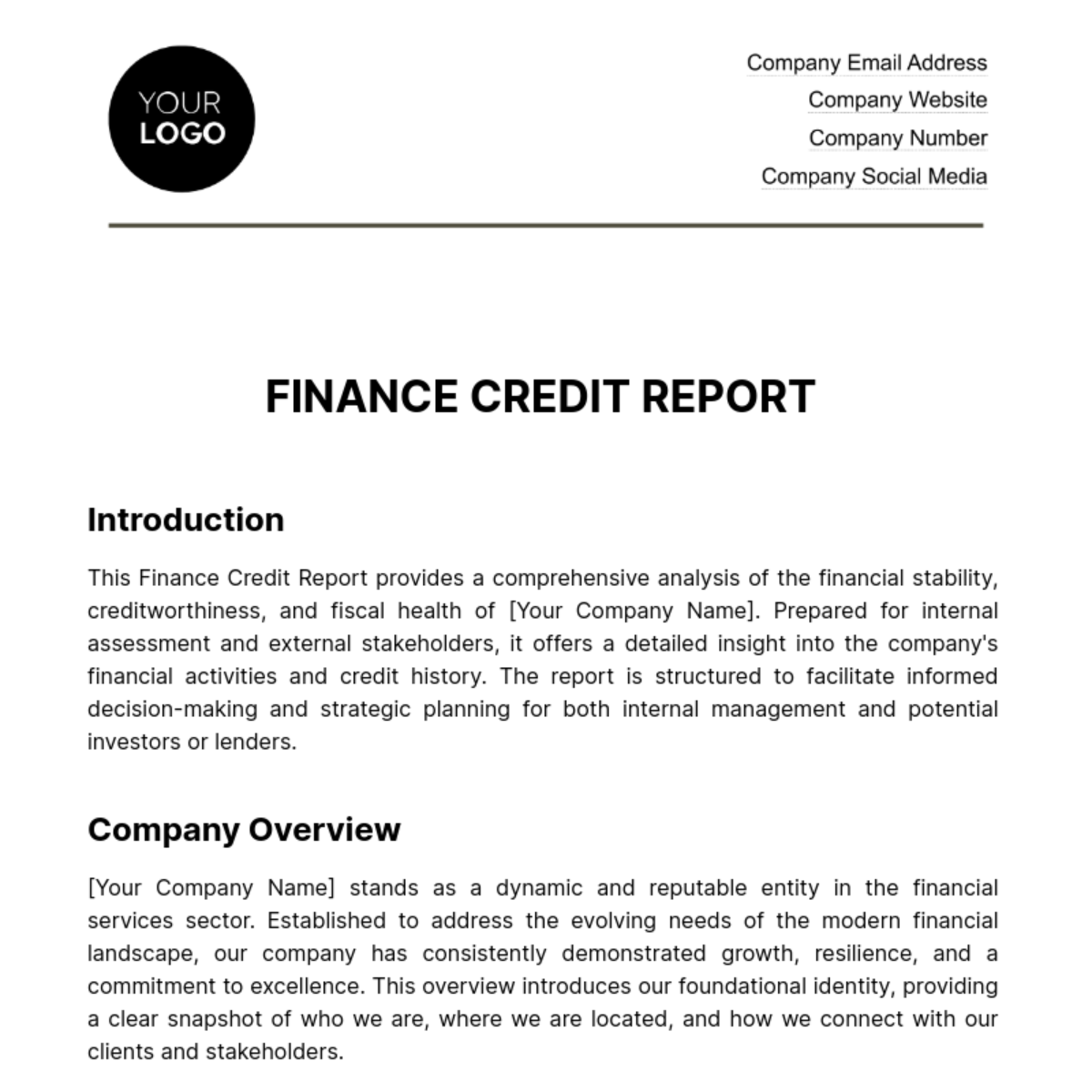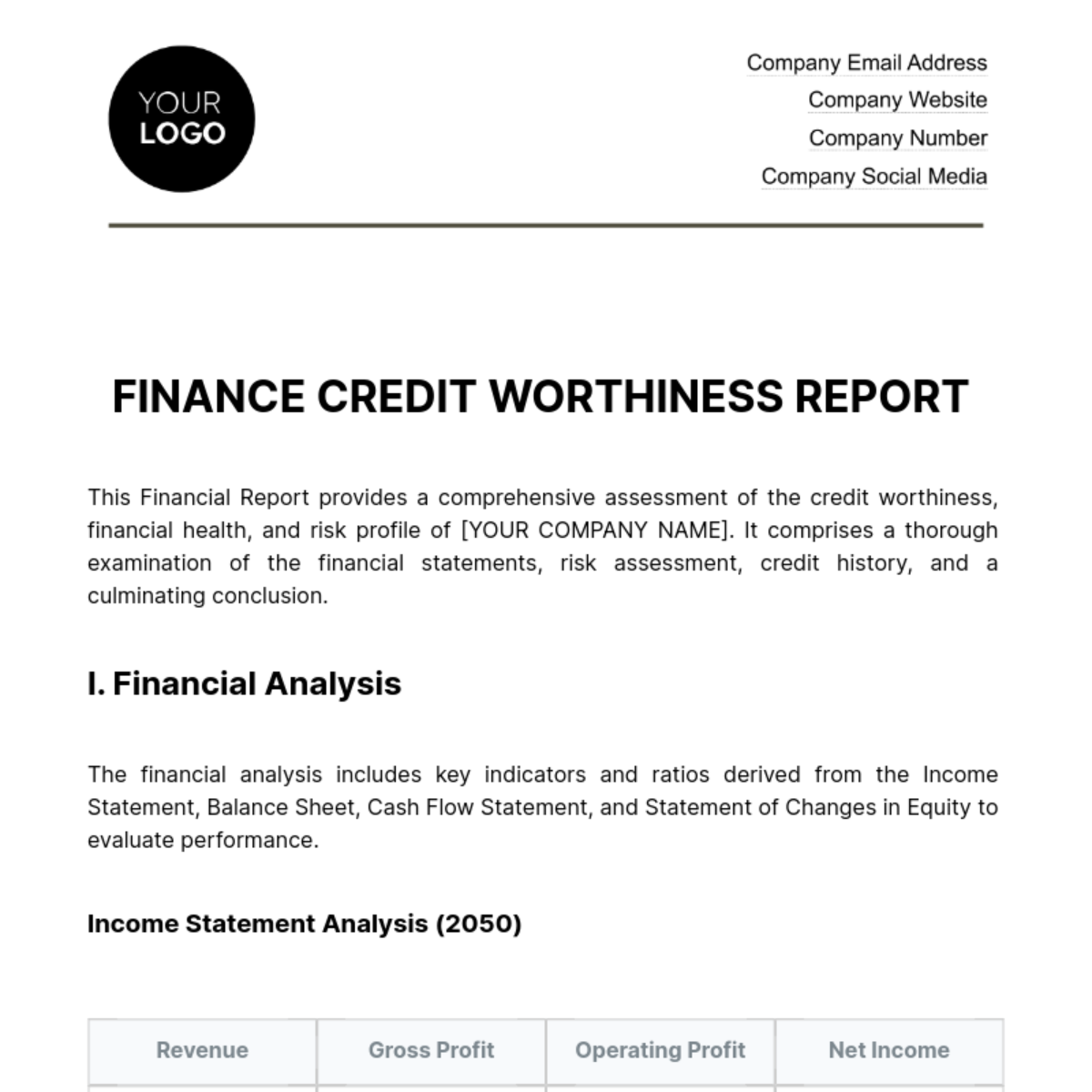Credit Report for Financial Advisors
I. Introduction to Credit Reports
A. Understanding Credit Reports
Credit reports are detailed summaries of an individual's credit history, primarily used by lenders to assess creditworthiness. Compiled by credit reporting agencies, these reports include information on credit accounts, payment history, and any outstanding debts. For financial advisors, understanding a client's credit report is crucial in providing fully informed financial guidance.
B. Importance for Financial Advisors
Financial advisors use credit reports to evaluate their clients' financial health. This assessment helps in crafting personalized financial strategies, such as debt management plans or investment advice. A clear grasp of a client's credit standing can guide advisors in recommending products like loans or credit cards that best meet their client's needs.
II. Components of a Credit Report
A. Personal Information
This section contains data like the individual's name, address, Social Security number, and employment history. Accuracy in this section is critical as errors can lead to identity confusion or fraudulent activities.
B. Credit Accounts
Credit accounts, or trade lines, encompass details about each credit line the individual holds. This includes types of accounts (such as credit cards, mortgages, or auto loans), account status, credit limits, balances, and payment history.
C. Public Records
Public records might include derogatory marks like bankruptcies, foreclosures, or tax liens. Such records can heavily impact credit scores, affecting the financial advice given by advisors.
D. Credit Inquiries
Credit inquiries are requests by lenders to review an individual's credit report, typically occurring when consumers apply for new credit. These are classified into hard inquiries, which may affect scores, and soft inquiries, which do not.
E. Summary Table of a Sample Credit Report
Component | Description |
|---|---|
Personal Information | Name, Social Security, Employment |
Credit Accounts | Type, Balance, Payment Status |
Public Records | Bankruptcies, Liens, Foreclosures |
Credit Inquiries | Recent credit activity and requests |
III. Strategies for Improving Credit Scores
A. Regular Monitoring
Encouraging clients to regularly monitor their credit reports can help detect errors or unauthorized activities early. Financial advisors should recommend services that provide credit alerts to keep clients informed.
B. Effective Debt Management
Devising a debt repayment strategy is vital for improving credit scores. Prioritizing debts with higher interest rates and emphasizing consistent, on-time payments are effective methods to support credit improvement.
Review credit reports regularly
Create a budget to avoid overspending
Negotiate with creditors to lower interest rates
Consider consolidating debts
C. Limit Credit Inquiries
Advise clients to be cautious about applying for new credit too frequently. While soft inquiries don't impact credit scores, hard inquiries can lower scores slightly. Strategic decisions about when and where to apply for credit can preserve a client's credit standing.
IV. Conclusion
A thorough understanding and effective management of credit reports are vital tools for financial advisors. By leveraging detailed information within these reports, advisors can empower clients to enhance their financial health and make informed decisions regarding their economic futures. The insights gained from analyzing credit reports are instrumental in tailoring financial plans that align with both current standings and future aspirations.
Prepared by:
[YOUR NAME]
[YOUR COMPANY NAME]
[DATE]






















